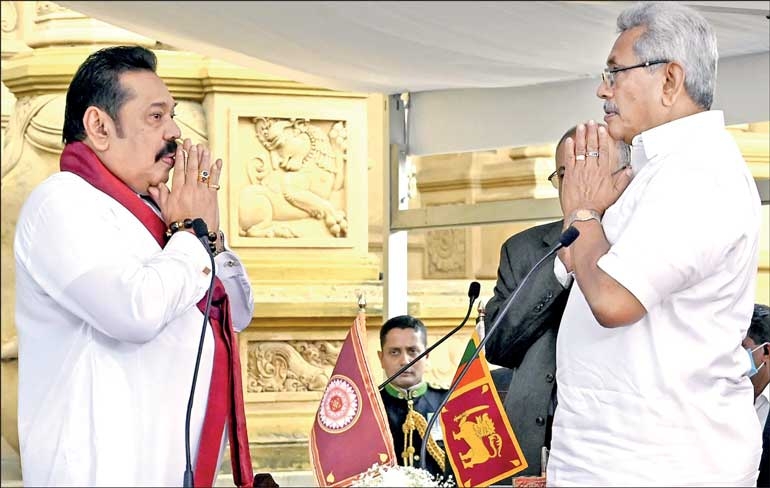Liz Truss and the Rajapaksas: Democracy and fate

On the sharp edge of the precipice, the UK halted, reversing back to relative safety.
A massive tax cut was the showpiece of the mini-budget of PM Liz Truss and chancellor of exchequer Kwasi Kwarteng. Reaction was immediate. Markets revolted. The pound crashed. The IMF issued the kind of rap-across-the-knuckles-statement it generally reserves for the Third World. The Bank of England pledged to buy UK government bonds worth 65 billion pounds (73 billion dollars) in a desperate attempt to reassure markets and save pension funds.
The prime minister and the chancellor of exchequer remained unmoved.
Then the Tory party’s dissent broke out into the open. With the annual party conference in session, more than a dozen MPs aired their disconcert in public. The naysayers included several Conservative grandees. Party chairman issued an implicit threat to deny nominations to those who would vote against the mini-budget. But the rebellion could not be staunched. Opinion polls showed that the tax cuts, especially reducing the top rate from 45% to 40%, and removing the cap on bankers’ bonuses were deeply unpopular with the electorate. More than half the voters wanted Liz Truss out.
Faced with the prospect of losing a parliamentary vote on the mini-budget and a general election, PM Truss backtracked. “We get it, we have listened,” said the chancellor of exchequer who had reportedly celebrated the tax cut at a champagne dinner with financiers. The worst was averted by throwing the most objectionable overboard – the slashing of the top tax rate. Democracy, and the dissent it enabled, saved the day.
Compare this with what didn’t happen in Sri Lanka when the Rajapaksas unveiled their own crazy tax cut. The objectors were few, the UNP and the JVP, some voices from civil society, international rating agencies. But from the ruling coalition, there was not a word of protest. Those who are now busy painting themselves in saviour-hues, from Dullas Alahapperuma, G.L. Peiris, and Charitha Herath to Wimal Weerawansa, Udaya Gammanpila, and Maithripala Sirisena, were as silent as the dead.
Tory MP Damian Green said, “It’s a political no brainer that if we end up painting ourselves as the party of the rich and the party of the already successful, then, funnily enough, most people won’t vote for us and we lose,” (The Guardian – 3.10.2022). In Sri Lanka, the SLPP said nothing about the Rajapaksa-giveaway to the rich, because the Rajapaksas were the party of the Sinhala-Buddhists. The majority safely tethered with minority-phobia, the coming parliamentary election was as good as won.
The Rajapaksas could get away with manifestly disastrous policies for so long because they could count on the backing of a majority of the majority. Another key contributory factor was the absence of inner-party democracy, an autocratic plague common to all Lankan parties. There was also the bureaucracy’s entrenched habit of going along with politicians up to the precipice and beyond. In the absence of the necessary human factor, institutional guardrails became reduced to stage props.
A sovereign default and two popular uprisings later, very little seemed to have changed. The factors that pushed us down the precipice are impeding our puny efforts to crawl out of it, starting with the Rajapaksas and the SLPP.

